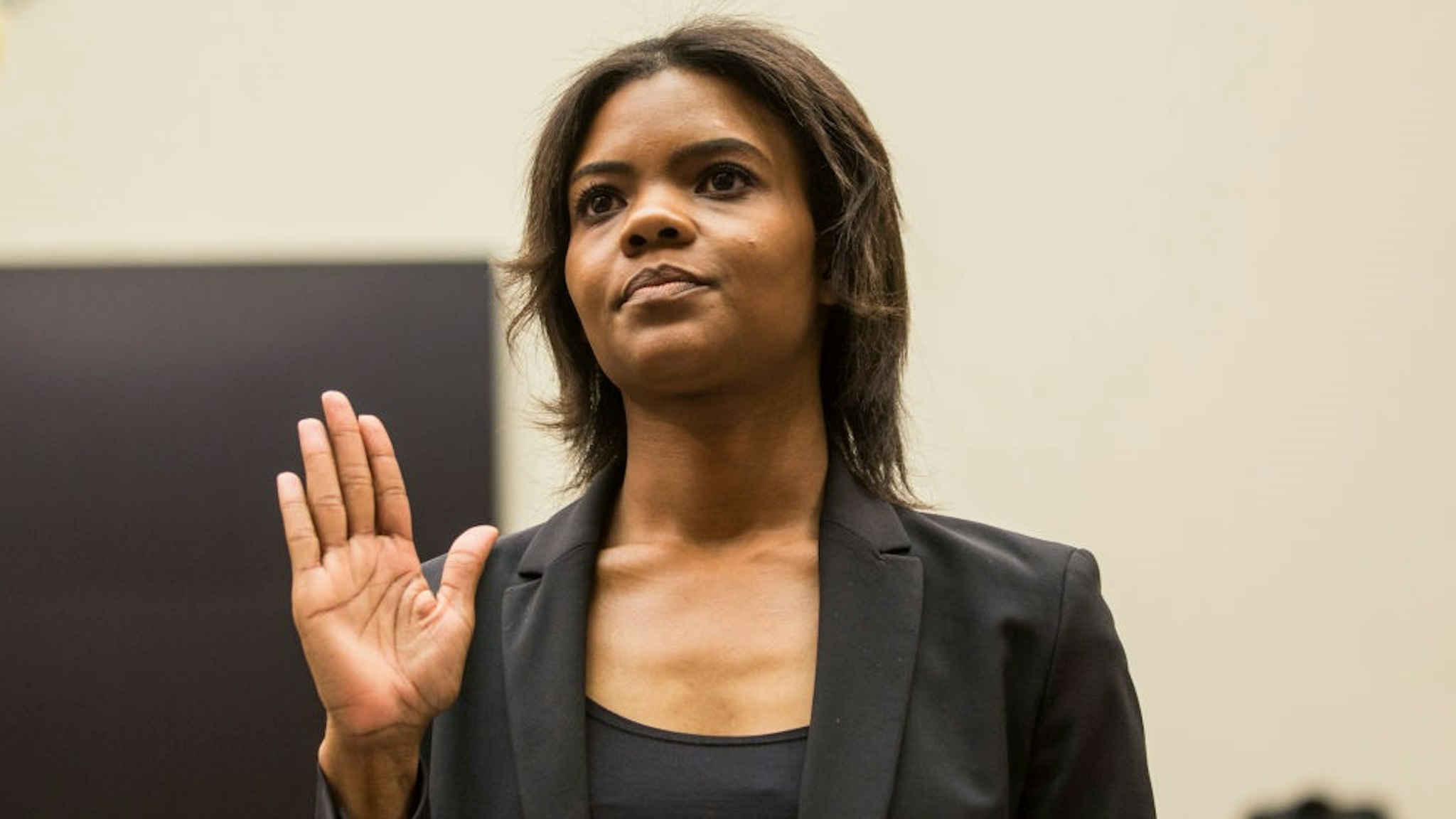On June 11th, Laura Ingraham’s Fox News program featured a lively debate between Dr. Cornel West, Professor of Philosophy at Harvard University, and Candice Owens, conservative commentator and leader of the “Blexit” movement.
The discussion, which began as a commentary on black voters’ response to the recent candidacy of Joe Biden, quickly shifted to the new, increasingly radical platform of the Left; particularly the increased call for socialist policies.
This discussion, will, I believe, end up becoming more than the sum of its parts for two very important reasons: For one, it shows that the Left is beginning to lose central place in African-American thought and life. For decades, Dr. West has been a public symbol for the intellectual foundation of African-American thought. With figures like Owens on the rise, conservatives like myself hope that this is an early sign of the breaking up of the intellectual and cultural monopoly that the Left has had on the African-American mind for many years.
Secondly, this discussion will hopefully encourage Americans, both black and white, to examine our own history in regard to race relations. Again, for decades, the assumption from the Left has been that of “if black, then poor — or born in poverty.” As a result, liberal candidates promote extreme government interventionism as a necessity for the livelihood of black America. Owens speaks directly to this false assumption:
OWENS: One hundred years after slavery, the black community was doing better. We were going up, up, up. Then suddenly, they socialized our community via welfare policies and the black community started going down, down, down.
Initially, Dr. West refuses to acknowledge programs like welfare as even having a socialistic base.
WEST: And so, my dear sister Candace, I would argue that welfare again now was not socialist, it was an attempt to intervene given the failure of capitalism to provide jobs of a living wage for people.
Despite this, he acknowledges the historical role of socialism in the African-American community:
WEST: The very fact that you have been able to aspire and achieve the level that you have, based on the struggle of those who came before from W. E. B. Du Bois, from Ida B. Wells, the Frederick Douglass, they were not concerned with -isms, they were concerned with justice and fairness. Now, Du Bois was a socialist but he didn’t — he wasn’t pro-welfare.
Dr. West’s listing of past African-American luminaries speaks to the fact that this debate is not new at all. It has deep roots in African-American history. The socialism that many liberal Democrats are championing today as necessary for the African-American population, necessary for economic equality, come directly from DuBois. As one brief biography on DuBois states:
A radical democrat, DuBois was not afraid to espouse unpopular notions of socialism and communism in the name of full socioeconomic equality.
With men like DuBois espousing the ideology of “socioeconomic equality,” is it really that difficult to believe that government interventionism has its roots in European socialism?
Yet, there is another important voice from African-American history; a name which is conspicuously absent from Dr. West’s list of African-American trail-blazers: Booker T. Washington.
Washington, a former slave who founded the Normal and Industrial Institute at Tuskegee in 1881, is perhaps most well-known for his address to The Atlanta Exposition, delivered in 1895, in which he encourages African-Americans to earn their place in society after the Civil-War by their own efforts:
…To those of my race who depend on bettering their condition in a foreign land or who underestimate the importance of cultivating friendly relations with the Southern white man, who is their next-door neighbor, I would say: “Cast down your bucket where you are”—cast it down in making friends in every manly way of the people of all races by whom we are surrounded.
Cast it down in agriculture, mechanics, in commerce, in domestic service, and in the professions … Our greatest danger is that in the great leap from slavery to freedom we may overlook the fact that the masses of us are to live by the production of our hands, and fail to keep in mind that we shall prosper in proportion as we learn to dignify and glorify common labour and put brains and skill into the common occupations of life; shall prosper in proportion as we learn to draw the line between the superficial and the substantial, the ornamental gewgaws of life and the useful. No race can prosper till it learns that there is as much dignity in tilling a field as in writing a poem. It is at the bottom of life we must begin, and not at the top. Nor should we permit our grievances to overshadow our opportunities.
Let me say immediately that I am in no way advocating for the circumscription of African-Americans into labor-only careers. Rather, what I see as valuable in Washington’s remarks is the idea of self-reliance. In rising by merit and personal effort rather than a call for a remake of “the system.”
The debate between Washington and DuBois is, in effect, the same as the one going on right now between figures like West and Owens. In other words, when liberals state that government interventionism is simply the accepted ideology for the African-American community, and that the self-reliance espoused by people like Owens is completely foreign to modern African-American culture, remind them that there have been other voices that espoused these views more than a century ago.

